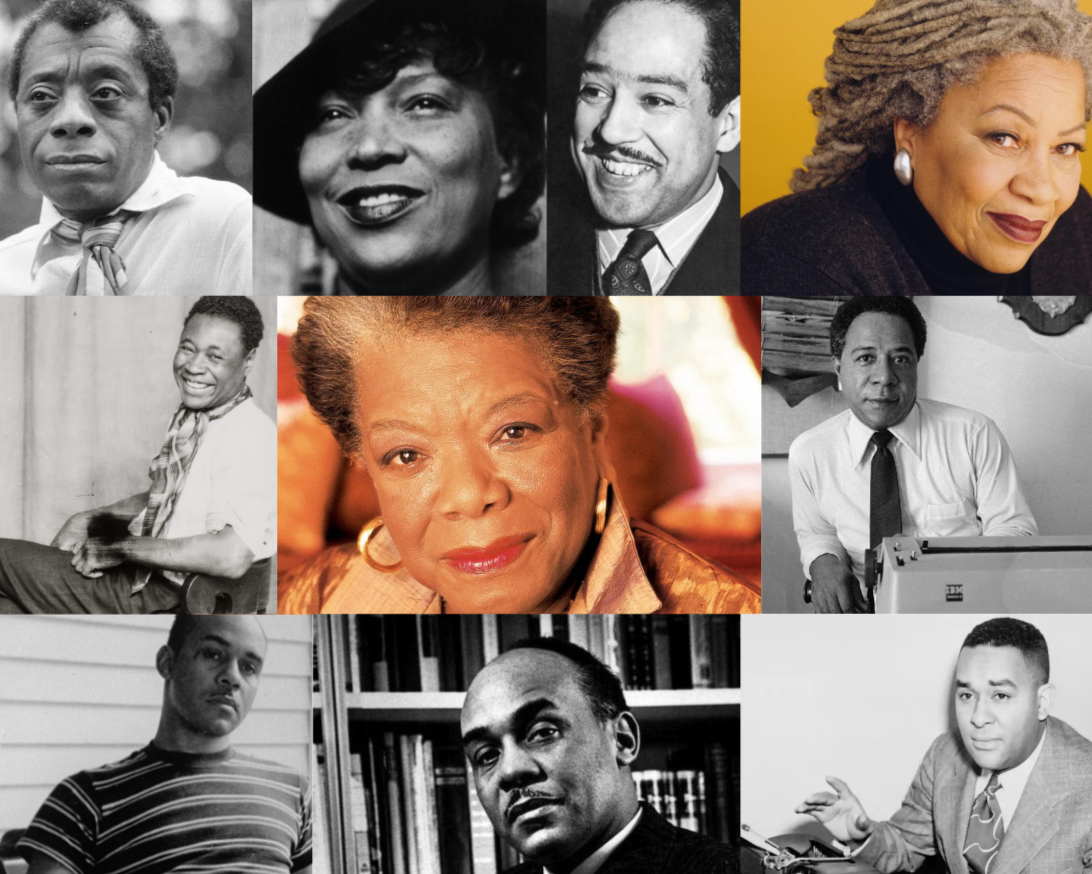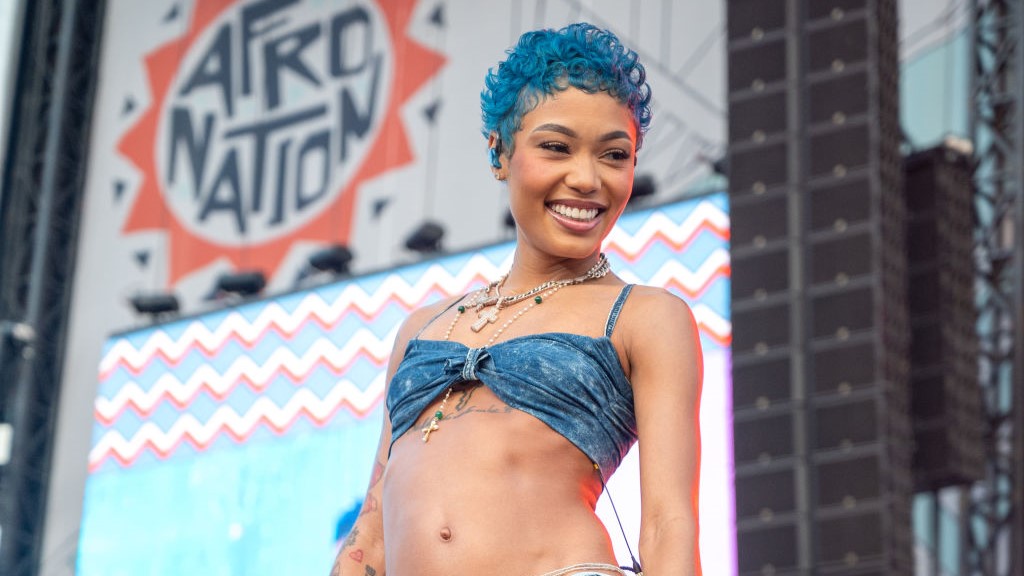(ThyBlackMan.com) Discussing who the most famous black author might be is a challenging endeavor, as it invites consideration of a myriad of impactful voices who have shaped literature and influenced societies. This exploration will consider several candidates, touching on their backgrounds, major works, and the legacies they’ve left behind.

James Baldwin – A Voice for Justice James Baldwin is often considered one of the greatest writers of the twentieth century. His works delve into the complexities of racial, sexual, and class distinctions in Western societies, most notably America.
Baldwin’s Key Works Baldwin’s novels and essays, such as “Go Tell It on the Mountain” and “The Fire Next Time,” explore issues of racial and sexual identity in personal and profound ways.
Maya Angelou – Poet and Storyteller Maya Angelou is renowned for her series of seven autobiographies, which focus on her childhood and adult experiences. “I Know Why the Caged Bird Sings” is perhaps her most famous work, detailing her life up to the age of 17.
Angelou’s Cultural Impact Angelou’s works have been widely used in schools and universities worldwide. Her contributions to civil rights and her powerful way of weaving words make her a seminal figure in American literature.
Toni Morrison – Chronicler of the Black Experience Toni Morrison, a Nobel Laureate, is celebrated for her contributions to literature. Her novels focus on black American life and are known for their epic themes, vivid dialogue, and richly detailed characters.
Morrison’s Masterpieces “Beloved,” “Song of Solomon,” and “The Bluest Eye” are among Morrison’s critically acclaimed novels that address issues of racial identity and historical memory.
W.E.B. Du Bois – Scholar and Activist Though primarily known as a sociologist and activist, W.E.B. Du Bois was also a prolific writer. His collection of essays, “The Souls of Black Folk,” is a foundational text in the history of sociology and African-American literature.
Du Bois’s Legacy in Literature Du Bois’s work is celebrated for its profound impact on the civil rights movement and for its exploration of black life in America and the struggle for racial equality.
Richard Wright – Pioneer of African-American Fiction Richard Wright’s novels, including “Native Son” and “Black Boy,” are brutal examinations of the black man’s struggle in America. His fearless confrontation of racial realities in his work marks him as one of the most courageous writers of his generation.
Wright’s Influence on Literature and Society Wright’s realistic portrayal of the black experience in America challenged the literary establishment and societal norms, making a significant impact on future generations of writers.
Zora Neale Hurston – Folklorist and Novelist Zora Neale Hurston was a central figure of the Harlem Renaissance. Her novel “Their Eyes Were Watching God” is considered a staple in both African-American and women’s literature.
Hurston’s Contribution to Cultural Preservation Hurston was also a respected anthropologist, who used her writings to preserve the cultural stories of the black South.
Langston Hughes – The Poet Laureate of Harlem Langston Hughes was influential in shaping the artistic contributions of the Harlem Renaissance. His poetry and plays often centered on realistic portrayals of black life and spoke directly to the black experience.
Hughes’s Versatile Literary Style Hughes was known for his jazz-influenced poems, as well as his innovative use of dialect and folklore. His work remains a vibrant voice in American literature.
Alice Walker – Symbol of Black Feminism Alice Walker is another towering figure in American letters. She won the Pulitzer Prize for Fiction for her novel “The Color Purple,” which has left an indelible mark on American literature.
Walker’s Activism Through Writing Beyond her novels, Walker is also celebrated for her essays and activist work, particularly in the areas of women’s rights and racial equality.
Ralph Ellison – Exploring the African-American Identity Ralph Ellison’s “Invisible Man” is a seminal work that explores the social and intellectual issues facing African-Americans in the early twentieth century, including the concept of racial identity.
Ellison’s Critique of Race and Invisibility Ellison’s narrative strategies and his profound critiques of the social construction of race have made him a critical voice in American literature.
Octavia Butler – Forging Paths in Science Fiction Octavia Butler is a pioneering figure in science fiction, using the genre to explore themes of race, sexuality, and humanity. Works like “Kindred” and “Parable of the Sower” challenge the boundaries of science fiction to consider societal issues.
Butler’s Legacy in Speculative Fiction Butler’s innovative use of science fiction to address complex issues of diversity and difference has earned her a unique place in literary history.
Derek Walcott – A Poetic Voice from the Caribbean Nobel Laureate Derek Walcott was known for his poetry and plays, with works like “Omeros,” a Caribbean reimagining of Homer’s epic narratives.
Walcott’s Integration of Caribbean History and Culture Walcott’s writing melds the beauty of the Caribbean landscape and the painful history of colonialism into his poetic narrative, offering a voice to West Indian culture.
Chinua Achebe – The Father of African Literature Chinua Achebe’s “Things Fall Apart” is perhaps the most famous African novel in global literature, offering insights into the effects of colonialism on African societies from an African perspective.
Achebe’s Influence on Postcolonial Literature Achebe’s works have not only shaped African literature but have also had a profound impact on world literature, encouraging a wave of African writers to tell their stories.
Lorraine Hansberry – Pioneer of the Stage Lorraine Hansberry’s play “A Raisin in the Sun” was the first play by an African-American woman to be performed on Broadway. Her work addresses the struggles faced by black people during the 1950s in America.
Hansberry’s Social Impact Hansberry used her writing to address racial injustices and human rights broadly, influencing both the theater world and the civil rights movement.
Audre Lorde – Voice of Liberation Audre Lorde was an American writer, feminist, and civil rights activist, whose works addressed issues related to civil rights, feminism, and the exploration of black female identity.
Lorde’s Contributions to Feminist Theory Lorde’s writings, including “Sister Outsider,” are essential in feminist, queer, and literary studies for their radical and nuanced exploration of identity.
Nella Larsen – A Forgotten Voice of the Harlem Renaissance Nella Larsen, another significant figure during the Harlem Renaissance, is known for her novels “Passing” and “Quicksand,” which explore the complexities of racial identity and gender roles during the 1920s.
Larsen’s Exploration of the Color Line Larsen’s novels are celebrated for their psychological depth and their critical engagement with the concepts of race and identity in America.
Paule Marshall – Chronicling the Diaspora Paule Marshall’s novels, like “Brown Girl, Brownstones,” explore themes of migration, identity, and the influence of the Caribbean on the lives of people of African descent living in America.
Marshall’s Impact on Diasporic Writing Marshall’s works provide a voice for the experiences of the Caribbean diaspora, emphasizing the interconnected histories and cultures of people of African descent.
Gwendolyn Brooks – A Poet of the People Gwendolyn Brooks was the first African American to win a Pulitzer Prize for her poetry, with works like “Annie Allen” that delve into the lives and struggles of ordinary African Americans in urban settings.
Brooks’s Influence on American Poetry Brooks’s contributions to American literature are immense, not only in terms of her poetic craft but also in her ability to capture the essence of the black urban experience.
Amiri Baraka – Art as a Tool for Activism Amiri Baraka, known for his outspoken activism and his writings about race and class, is a central figure in American literature. His works often reflect his commitment to racial justice and his criticism of oppressive structures.
Baraka’s Role in the Black Arts Movement Baraka was instrumental in the Black Arts Movement, which sought to create a new aesthetic that embraced African American culture and fought against traditional forms of art that did not serve the interests of black people.
John Edgar Wideman – Chronicling Urban Life John Edgar Wideman is known for his books about personal and familial experiences, particularly within the context of the African American urban community.
Wideman’s Narrative Innovation His innovative use of narrative structure and his profound insights into the complexities of urban life make him a significant figure in contemporary literature.
Jesmyn Ward – A Modern Voice in Southern Writing Jesmyn Ward, a two-time National Book Award winner, is known for her novels like “Sing, Unburied, Sing,” which explore the legacies of racism and poverty in the South.
Ward’s Intergenerational Narratives Ward’s work is characterized by its lyrical prose and the depth of its emotional and historical insights, making her one of the most powerful voices in modern American fiction.
Colson Whitehead – Revisiting the Pasts to Inform the Present Colson Whitehead’s novels, such as “The Underground Railroad” and “The Nickel Boys,” blend meticulous historical research with elements of magical realism, offering new perspectives on the past.
Whitehead’s Contributions to Understanding Historical Traumas Whitehead’s imaginative retelling of history challenges readers to reconsider the narratives surrounding African American history and its ongoing impact on contemporary society.
Ta-Nehisi Coates – Between the World and Me Ta-Nehisi Coates is a distinguished writer and journalist, known for his exploration of race relations in America. His book “Between the World and Me” is framed as a letter to his son, discussing the realities of being black in the United States.
Coates’s Influence on Political and Social Discourse Coates’s writings, which include extensive works on black identity and systemic racism, have made him one of the most influential contemporary public intellectuals.
Isabel Wilkerson – Documenting the Great Migration Isabel Wilkerson’s “The Warmth of Other Suns,” which chronicles the Great Migration of African Americans from the rural South to urban centers in the North, is a monumental work of narrative nonfiction.
Wilkerson’s Role in Chronicling American History Wilkerson’s detailed research and compelling storytelling provide a vital account of a profound era in American history, shedding light on the broader social impacts of migration.
Ibram X. Kendi – A Voice for Antiracism Ibram X. Kendi, through his books like “How to Be an Antiracist,” has become a leading voice in the discussion about racism and antiracism in America.
Kendi’s Educational Initiatives Beyond his writing, Kendi is committed to antiracist education and policy ideas, advocating for transformative concepts to combat systemic racism.
Conclusion: The Spectrum of Voices
Deciding who the most famous black author is might be less important than recognizing the range and depth of the contributions each author has made to literature and society. From the raw realities of Wright and Baldwin to the speculative futures imagined by Butler, these authors collectively enrich our understanding of the world and continue to influence generations across the globe. Each brings a unique voice and perspective that profoundly impacts readers and reshapes the literary landscape.
Staff Writer; Jamar Jackson
This brother has a passion for poetry and music. One may contact him at; JJackson@ThyBlackMan.com.















Leave a Reply